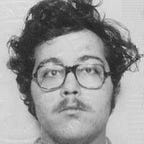Yeah, This Seems to Indicate Guilt
It appears that Google aggressively trained workers in the use of euphemisms for anti-competitive behavior in an attempt to evade regulators.
This would indicate some knowledge of the fact that they were engaging in monopolistic behavior, as does their CEO’s request that logging be turned off for the internal chat programs.
The Department of Justice kicked off its antitrust trial against Google this week by presenting evidence that Google allegedly hid monopolistic behaviors not just by auto-deleting four years of chats, but also by training employees to avoid using certain words in office communications.
DOJ attorney Kenneth Dintzer argued that Google executives knew the company would be scrutinized as a monopoly and since at least 2003 have circulated “unambiguous instructions on phrases” employees should “avoid” to ensure that the company doesn’t “come across like monopolists,” Bloomberg reported.
“We should be careful about what we say in both public and private,” Google’s chief economist, Hal Varian, wrote in a July 2003 memo.
Gee, Google’s chief economist? Why not someone from their legal department?
I dunno, maybe because if a lawyer gave that advice, they know that there was the potential of the State Bar getting up their ass about it, but no one licenses economists.
………
Among words and phrases that Google employees were trained to avoid were “market share,” “scale,” “network effects,” “leverage,” “lock up,” “lock in,” “bundle,” and “tie.”
………
During a 2011 training called “Antitrust Basics for Search Team,” Google also directed employees to “avoid metaphors involving wars or sports, winning, or losing.” At the trial, Varian testified that he couldn’t remember ever taking that training.
………
One particular phrase that documents showed Varian said to avoid was “cutting off their air supply,” which Bloomberg pointed out was “a quip used years earlier by then-Microsoft Corp Chief Executive Officer Steve Ballmer, when his company was under federal antitrust scrutiny.” The DOJ’s pre-trial brief specifically used this phrase to refer to Google’s alleged monopolistic behaviors, writing that the DOJ “will demonstrate that Google has maintained its durable monopolies in general search services — and the related advertising markets that fund it — by cutting off the air supply to Google’s rivals, denying them access to user data and the scale needed to compete.”
He was not advising that the behavior not be engaged in, just not the phrase.
At trial, the DOJ also presented evidence and testimony about Google’s policy called “Communicate with Care.” Under that policy, Google employees are trained “to have sensitive conversations over chat with history off,” the DOJ said, ensuring that the conversation would be auto-deleted in 24 hours.
This policy has created much tension between the DOJ and Google before the trial. The DOJ has argued that “Google’s daily destruction of written records prejudiced the United States by depriving it of a rich source of candid discussions between Google’s executives, including likely trial witnesses.” Google has defended the policy, claiming that the DOJ has “not been denied access to material information needed to prosecute these cases and they have offered no evidence that Google intentionally destroyed such evidence.”
At the trial, Dintzer told the court that the DOJ had evidence that Google “hid and destroyed documents because they knew they were violating the antitrust laws,” Bloomberg reported.
In one example, Dintzer shared a trial exhibit showing an October 2021 chat where Alphabet CEO Sundar Pichai requested a link for his next “leaders circle” and specifically requested, “can we change the setting of this group to history off… thanks.”
Destruction of evidence can be construed as evidence of guilt, as is evidenced by the default judgement against one of the US private aircraft manufacturers in the 1980s, they had destroyed test results for seats a decade prior.
I don’t think that this will happen, but this certainly is something that the judge could consider. (It’s a bench trial)
Take what I say with a grain of salt though, I am an engineer, not a lawyer, dammit!*
*I love it when I get to go all Dr. McCoy!
